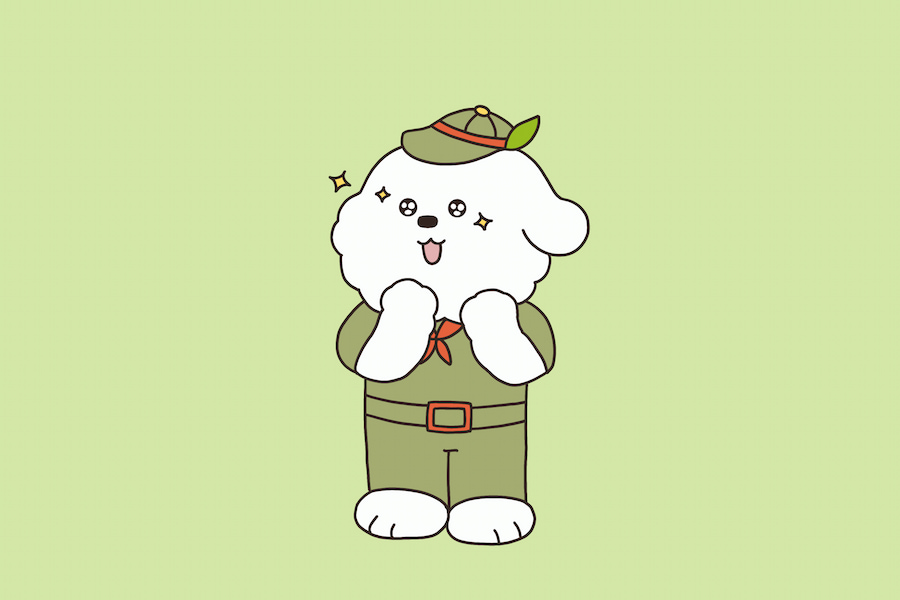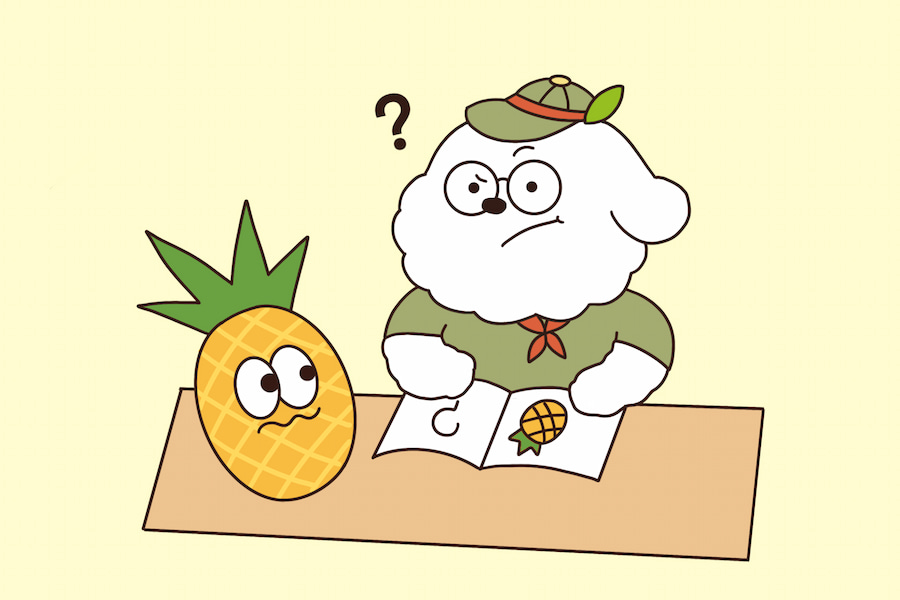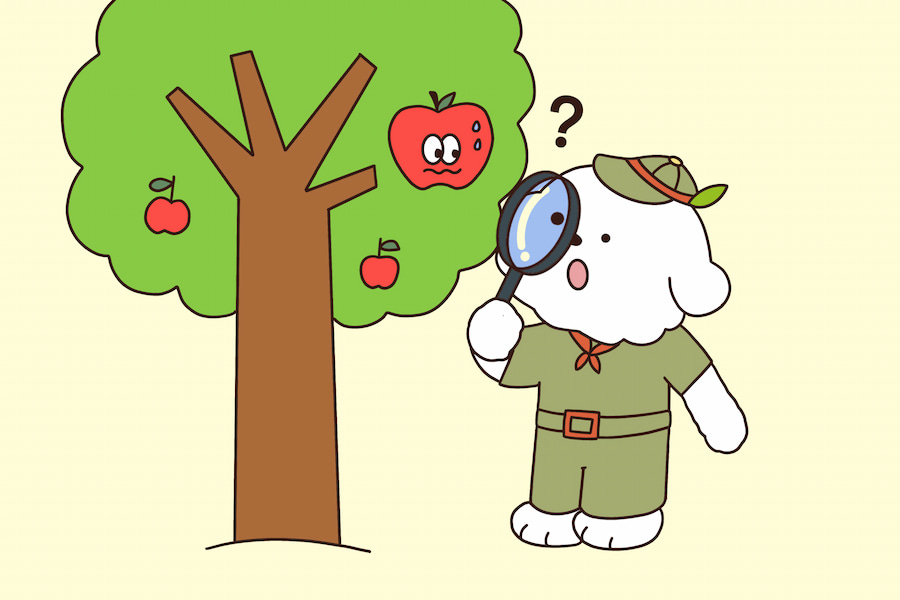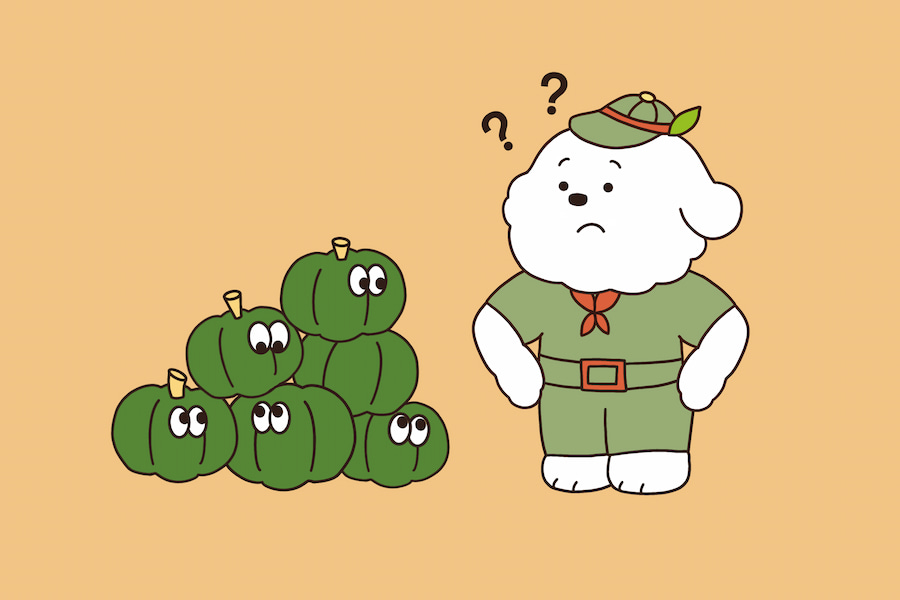In this article, I’ll guide you about can dogs eat carrots, the safety of carrots, their benefits, the serving procedure, precautions while serving carrots to dogs, and when they are bad for your dog.
Can Dogs Eat Carrot?
Yes, dogs can eat carrots. Carrots are a good source of vitamins and nutrients that can benefit a dog’s vision, skin, heart, and gut health. Carrots contain many beneficial vitamins and nutrients, including beta-carotene, vitamin K, and potassium.
Beta carotene is later converted into vitamin A by the dog’s liver. Vitamin A is highly beneficial for your dog’s vision. At the same time, vitamin K plays an important role in your dog’s blood clotting if they ever get any injury. Carrots also contain a good amount of fiber, which is beneficial for your dog’s cardiac and gut health.
Carrots are safe for puppies and adults; just be mindful of the serving procedure and quantity of carrots.

Lee&Pol offers the best treat for your dog’s eye health by combining omega-3 rich dried pollock with carrots.
Are Carrots Good for Dogs?
Carrots are an excellent low-calorie snack for your dog. They are affordable, healthy, and crunchy for your pet at the same time. They can benefit many systems of your dog, including eyesight, heart, skin, and gastrointestinal system.
If your dog is battling obesity, then carrots are your perfect treat because they are low in calories, and most dogs love carrots.
Benefits of Carrot for Dogs
Not only can dogs have carrots, but they also have excellent benefits if given in the right amounts. Carrots can benefit your dog’s eyesight, heart health, and gut health, and they can also result in a shiny coat. Plus, this vegetable also improves your dog’s immunity. Let’s get into the details:
1. Eyesight
Do you remember when our parents told us to eat carrots because they’d increase our vision? The same is true for dogs. Carrots contain a good amount of a carotenoid called beta-carotene. Beta-carotene is converted into vitamin A by the dog’s liver. This vitamin A highly benefits the dog’s rods and cones, which are the cells for day and night vision.
Interestingly, you may have rarely heard of a vitamin A deficient dog. That’s because most of the commercially available dog foods use carrots as an ingredient.
3. Gut Health
Carrots contain insoluble fibers that are responsible for better bowel movements. These insoluble fibers are also responsible for removing toxins from the colon.
3. Heart Health
Carrots also contain a good amount of soluble fibers. These soluble fibers benefit your dog’s heart by managing blood cholesterol levels.
4. Shiny Coat and Skin
Carrots have vitamin C, which is an antioxidant, and vitamin A also has antioxidant properties. These antioxidants in carrots promote healthy skin and shiny coats of dogs by fighting against free radicals. Vitamin C promotes the production of collagen, a protein responsible for skin structure, strength, and elasticity. At the same time, vitamin A increases blood flow towards the skin.
5. Tear Stains
Carrots are also helpful for reducing tear stains in dogs. They are rich in beta-carotene, which improves eye health and reduces tear staining. However, tear staining could be due to many factors and different conditions, including glaucoma, corneal ulcers, and eye infections. Make sure to visit your vet if your dog has excessive tear stains.
6. Dental Benefits
The mildly abrasive surface of raw carrots has a positive impact on the dog’s dental health. Dogs bite into large carrots because they cannot swallow large carrots at once. This thing will remove plaque from your dog’s teeth and keep their teeth clean. If your dog hates brushing, then offering them carrots will keep their teeth somehow clean. However, carrots are not an alternative to regular teeth brushing.
7. Benefits of Carrots for Teething Puppies
When my puppy was teething, I used to offer him chilled and frozen carrots because, I knew that they soothe the gums of teething puppies and relieve the discomfort from teething. You can freeze large carrots or bite-sized pieces for teething puppies. Make sure that you don’t offer frozen baby carrots to puppies, as they have a choking risk for puppies.
8. Low-Calorie Treat
If you’re dealing with a diabetic pet, it might be difficult for you to maintain the calories because you may be rewarding your pet for different activities with treats that are high in calories. Carrots are a great alternative to high-calorie treats. They have low calories and low fat, thus becoming the perfect treat for diabetic pets.
However, make sure that carrots, along with all other treats, should not exceed 10% of your dog’s daily diet. While the remaining 90% of your dog’s diet should comprise well-balanced dog food.

Lee&Pol provides the best nutritious treat for your dog’s health by combining healthy carrots with dried pollock, making it rich in both animal and plant-based nutrients.

How to Feed Carrots for Dogs?
Carrots can be fed raw, cooked, and frozen. Just remember that moderation is the key while feeding carrots, just like other fruits and vegetables. This orange vegetable has awesome benefits for your dog if offered in the right amount and prepared the right way. Let’s get into the details:
Precautions When Feeding Carrots to Dogs
Although carrots are safe for dogs to consume, some precautions to keep in mind are:
- Always thoroughly wash because carrots may have dirt, bacteria, and pesticides on their surface
- Cut the carrots into small bite-size pieces as per your dog’s size to avoid choking
- If you’re offering cooked carrots, then make sure they are without any seasonings like butter, oil, honey, salts, and spices
- Don’t go overboard with the quantity because it can result in weight gain and upset stomach owing to the good amount of sugar in carrots.
- Avoid offering baby carrots to small dog breeds and puppies to avoid choking
Can Dogs Eat Raw Carrots?
Yes, dogs can munch on raw carrots. Before offering raw carrots, clean and wash them thoroughly to remove the dirt, bacteria, and pesticides present on the surface. You may be wondering whether the leafy green tops of carrots are safe for dogs. Every part of carrots, including their skin and leafy green tops, is totally safe for your dogs, so there is no need to remove those leafy green tops.
However, make sure that you cut the carrots into bite-size pieces depending on your dog’s size so that your dog can easily ingest them. You can even offer whole large carrots to large dog breeds like German Shepherds, and they can easily chew and eat large carrots.

However, if you have a smaller dog breed, then it’s wise to cut the carrots into bite-size pieces. It’s also a good idea not to offer baby carrots to small dog breeds or puppies, as they pose a choking hazard.
Can Dogs Eat Cooked Carrots?
Yes, dogs can eat cooked carrots. Many people think that cooking will alter the nutritional value of carrots, but that’s not true. Many vegetables offer more nutrients while raw, but carrots offer more nutrients when cooked. The reason is that the cellulose covering of raw carrots is not digestible by dogs. However, make sure that cooked carrots are without any seasonings like butter, honey, salt, and spices. You should also avoid offering garlic and onions along with carrots because they are toxic to dogs.

Beta-carotene and vitamin A, which are abundant in carrots, are fat-soluble, so their absorption rate increases when cooked with oil, such as stir-frying. If you’re frying carrots for your dog, make sure that you use dog-friendly oil.
Also, make sure that you cut the cooked carrots into small bite-size pieces to avoid choking hazards, especially if you have a smaller dog breed or a puppy. Hot cooked carrots can burn your dog’s mouth. Always ensure that they are cool enough before giving them to your dogs.
If you have an older dog with mouth issues, you may even mash the carrots after cooking them.
Carrot Dog Treats
You can use carrots as an occasional low-calorie treat for your dogs. You can also add carrots to your dog’s regular meals to make things interesting. Carrots are perfect for your dog’s sweet and delicious crunchy cravings. You can serve carrots raw or cooked; just make sure that you cut them into bite-size rounds or slices.

Lee&Pol uses only fresh carrots without any seasonings, spices, or additives, so you can feed them to your dog with confidence.
How Much Carrots Can a Dog Eat?
Now, your question, “Can dogs eat carrots?” is clear. So, let’s learn about the quantity of carrots for dogs. Moderation is the key while scratching your head about the quantity of carrots you can feed your dog. The amount of carrots your dog can eat depends on their size. It’s recommended to visit your vet to get personalized advice on how much carrot you can give to your dog. A general guideline for feeding carrots is described below in the table:
| Dog Size | Serving Size (Slice=1/4 inch thick) | Dog Breeds Examples |
|---|---|---|
| Extra small dog (2–20 pounds) | 1-2 carrot slices | Yorkies, Pomeranians, Pugs |
| Small dog (21–30 pounds) | Up to 3 carrot slices | Basenjis, Miniature Australian Shepherds |
| Medium dog (31–50 pounds) | 5-6 carrot slices | Basset Hounds, Border Collies, Siberian Huskies |
| Large dog (51–90 pounds) | handful of carrot slices | Pit Bulls, German Shepherds, Australian Shepherds |
| Extra-large dog (91+ pounds) | large handful of carrot slices | Newfoundlands, St. Bernards, Great Pyrenees |
Is it Safe for a Dog to Eat a Carrot?
Yes, it is totally safe for dogs to eat carrots, except if they have a carrot allergy that is very rare or they’re on a prescribed diet. But you should always keep in mind some prerequisites for giving carrots to your dog. You should invest some time in understanding the serving procedure and the quantity that is suitable for your dog to reap the full benefits of carrots without having to face any issues.
Can Dogs be Allergic to Carrots?
I have never seen any dog with a carrot allergy. Most dogs are not allergic to carrots, and most of the dogs love to munch on carrots because of their natural sweet taste. However, some dogs may show signs of an allergy if they eat too many carrots. Also, if you’re introducing carrots to your dog for the first time, it’s a good idea to check for allergies. In the start, offer only a small amount of carrots to see if your dog is allergic to them. Signs of food allergy in dogs include:
- Itchy skin
- Fatigue and depressed
- Sneezing
- Hot spots
- Hair loss
- Ear infections
- Loss of appetite
- Diarrhea
- Vomiting

If you observe any of these signs after giving carrots to your dog, immediately stop feeding carrots and visit your vet immediately.
When Are Carrots Bad for Dogs?
Although carrots are a great low-calorie snack for dogs, in some cases, carrots can become unhealthy. Let’s learn when carrots can become bad for your furry friend.
1. Carrots are Bad for Dogs if Eaten Excessively
Carrots contain sugar, which can lead to issues if eaten in large amounts. The short-term consequences of excessive carrot consumption can be an upset stomach, while the long-term issues include obesity. Keep in mind that all treats should not exceed 10% of your dog’s daily caloric intake, and the remaining 90% should be well-balanced dog food.
2. Serving Size
Carrots can cause choking and intestinal obstruction if not served in the proper size. Small dog breeds like Pomeranians and puppies are at a greater risk of choking than larger dog breeds. Always cut the carrots into small bite-size chunks to avoid these issues.
3. Carrot Cake
Carrot cake is not safe for dogs because it contains a lot of sugar. Excessive amounts of sugar in the carrot cake can disturb your dog’s stomach. Moreover, carrot cake may contain an artificial sweetener called xylitol, which is toxic to dogs.
4. Carrot Juice
Although carrot juice is safe for dogs, store-bought carrot juice is not safe for dogs because it might contain harmful ingredients.

If you want to give carrot juice to your dog, then I recommend you juice the carrots yourself. Although it reduces the fiber content of carrots, however, you can add some pulp back into the juice to get the full nutritional benefits of carrots. Also, discard the leftover juice after 1-2 days, as vegetable juices don’t store well even in the refrigerator.
Conclusion
Carrots are an excellent low-calorie snack for dogs with awesome benefits. Carrots benefit dog’s vision, gut health, heart health, dental health, skin and coat, and immune system. Stick to the recommended serving sizes mentioned above to get the full nutritional benefits of carrots.
Carrots can be served raw or cooked, but they should always be cut into bite-size pieces to avoid choking. Carrot cake, store-bought carrot juice, and excessive carrot consumption are a big no.
FAQ
Yes, all parts of carrots are completely safe for dogs. Carrot skin is concentrated with vitamin C and phytonutrients that are highly beneficial for dogs. According to a study, phytonutrients improve gut health, cardiac health, and visual functions, as well as improve the immune system.
Baby carrots are not preferable for dogs, especially small dog breeds and puppies, as they may cause choking and intestinal obstruction. Always cut carrots into small bite-size chunks to avoid any choking hazard.
Yes, dogs can eat freeze dried carrots. Freeze dried carrots are rich in vitamins, fibers, and antioxidants. They can be highly beneficial for your dog’s eyesight, stool consistency, and shiny coat. Feed freeze dried carrots in moderation and make sure they’re free from preservatives and seasonings.



